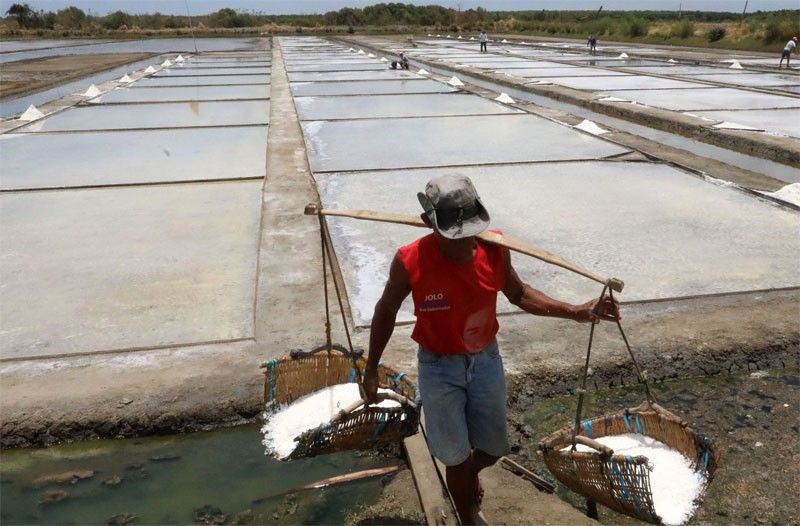‘Salt makers should not be required to iodize product’

MANILA, Philippines — All the government needs to do is repeal the law that requires salt makers to iodize their product, and the Philippines can redeem its once glorious days in the 1970s when importing salt was not necessary, a key House member hinted yesterday.
As far as Albay Rep. Joey Salceda is concerned, the problem with the salt industry is too much regulation as specified in the Salt Iodization Law (Republic Act 8172), which is why he said he would push for amendments to it.
“The problem right now is that RA 8172 amendments are referred to the committee on health, which means the industry considerations and food security concerns are secondary to the health discussions,” he pointed out.
“I think the law exceeded its bounds in that it presumed the State should have the ultimate say about a person’s health choices. We have stunted a once-thriving industry as a result of such a presumption,” Salceda said.
Nonetheless, the chairman of the House of Representatives’ ways and means committee is optimistic this industry “which has declined significantly from its peak in the 1970s, is the easiest agricultural industry to revive.”
“The salt industry is not dead. But it’s a bonsai industry. We try to cut it with so many self-imposed regulations. As an extremely low-margin business, the salt sector has been stunted by regulation,” Salceda observed.
The House leader said government can still do away with its 93 percent import of salt if the Marcos administration can “repeal the requirement that salt makers have to iodize their salt.”
“We can keep the requirement that food manufacturers have to use iodized salt. We can require iodization in all school canteens. But we should offer people the choice over their nutrition, not require everybody at the expense of our domestic salt sector,” he suggested.
He said it was ironic that the Philippines is a country with one of the longest coastlines in the world, estimated to be 36,000 kilometers across the archipelago, from Luzon, Visayas to Mindanao, and yet the government needs to import salt.
“Shameful is one way to describe it. Stupid is another way,” Salceda remarked.
He also proposed that the Department of Environment and Natural Resources “simply create a list of areas for salt-making without significant environmental restrictions. Salt-making is one of the less environmentally destructive sectors.”
“We have artisanal salts. Tibuok in Bohol is one of the best in the world. And yet, they cannot even sell domestically because they can’t iodize, even when imported Himalayan salts freely get sold in the market. This is frankly ridiculous,” he said.
- Latest
- Trending



























